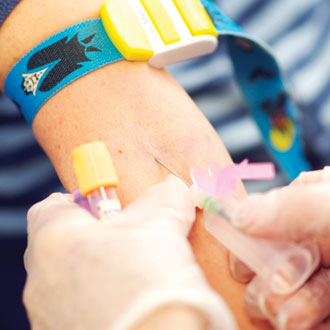Screening committee calls for tighter regulation of ‘unethical’ private MOTs

Exclusive Government advisors have warned that private companies are promoting non-NHS health screening checks in an unethical way, after Pulse revealed that GPs are increasingly faced with counselling patients who have paid to undergo the bogus and in some cases potentially harmful tests.
The UK National Screening Committee told Pulse that some private screening – which includes PSA testing and non-referred MRI scans – are unnecessary and can lead to patient harm.
It was responding to a survey by Pulse of 1,170 GPs, which found that nearly half of GPs reported their workload has gone up in the past year due to patients wanting to discuss results from non-evidenced based health screening tests they have paid for privately.
Private healthcare analysts LaingBuisson estimated growth in private health screening revenues at ‘5% to 7% in 2014 and 2015, which was an acceleration on previous years’.
GP leaders said this reflected their own experience – particularly in more affluent areas and with middle-aged patients increasingly directly targeted with adverts promoting the benefits of screening – and called for tighter regulation of private testing.
Dr Anne Mackie, director of screening programmes at the UK National Screening Committee (NSC) – the body which evaluates population screening tests and advises the Government on which ones should be adopted – said ‘Some of the conditions screened for by private companies are not recommended by the UK NSC and there are concerns that the potential harms of this screening are not clearly presented to the patient.
‘Offering screening without explaining fully the risks relating to false positives, which can lead to raised anxiety and further unnecessary diagnostic tests, and false negatives, which provide false reassurance, is unethical.’
Pulse’s survey also indicated that some patients are clearly coming to harm, with GPs widely reporting patients being caused unnecessary anxiety as well as investigations and treatment for ‘incidentalomas’ – in one case a patient had a kidney and tumour removed, which was found to be benign.
Professor Helen Stokes-Lampard, chair of the RCGP, said: ‘We have heard anecdotally that GPs are seeing an increasing number of patients making appointments to discuss the findings of private testing because they are worried, or they think they need treatment as a result, that might be of dubious value.
‘At a time when general practice is facing such intense resource and workforce pressures, this additional demand is unhelpful for everyone concerned, particularly patients who genuinely need to see a GP but are struggling to make a GP appointment.’
Glasgow GP and broadcaster Dr Margaret McCartney has held ‘informal talks’ with the House of Commons Health Committee about potential measures, which she said could involve a levy on private companies to pay the NHS for the work their tests create.
However, she added: ‘Fundamentally we need some sort of legislation to underscore the principle that these tests are not evidence-based – perhaps an “anti-quackery” clause that all customers must sign before consenting to go through screening.’
The Department of Health declined to respond to the findings and the demands for action on private testing.
Have you seen an increase in the past 12 months in patients attending general practice after undergoing private screening?
Yes – 43%
No – 50%
Don’t know – 7%
The survey was launched on 9 November 2016, collating responses using the SurveyMonkey tool. The 29 questions covered a wide range of GP topics, to avoid selection bias on one issue. A total of 1,170 GPs answered the question above.
Pulse July survey
Take our July 2025 survey to potentially win £1.000 worth of tokens













